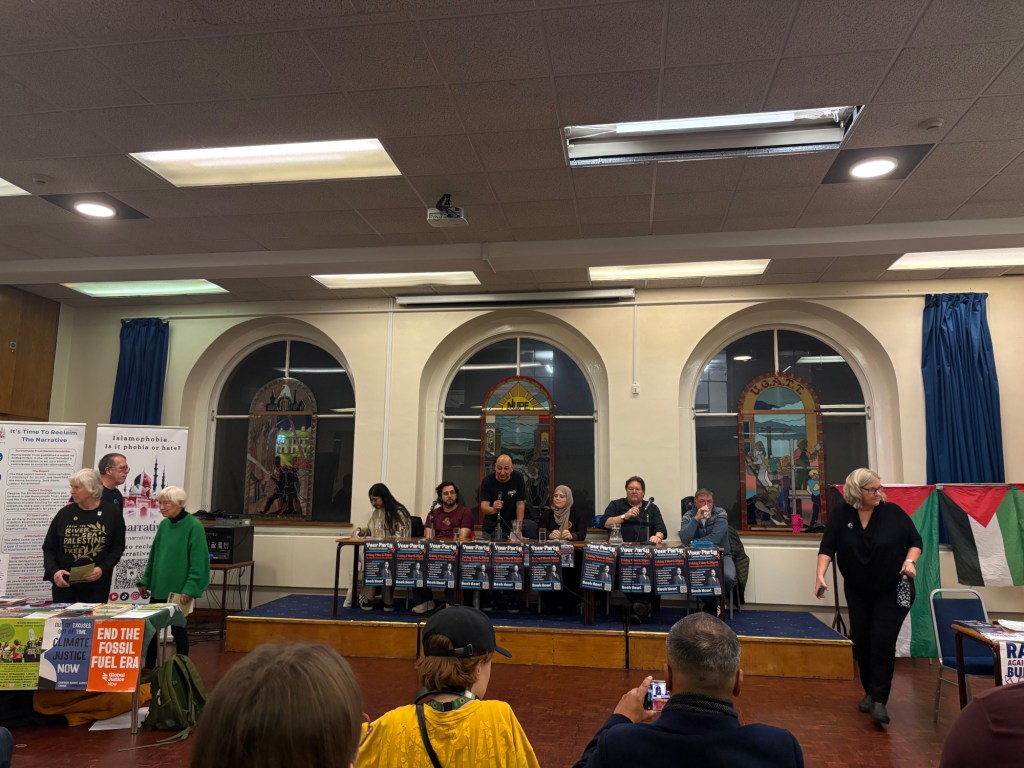As if the French hadn’t enough on their plates, with turbulent elections and an underwhelming Euros performance, they’ve now had to contend with the prospect of terrorism blighting the Olympic Games. At least one major terror plot has been foiled by the French authorities, and pro-Islamic State channels are issuing threats to stadiums and fans.
The main concern comes from the Afghanistan-based ‘Islamic State of the Khorasan Region’ (IS-K), and for good reason too. Back in March 2023, US Army General Michael Kurilla warned Congress that IS-K could launch an attack against European targets with ‘little to no warning’. A year later, the group took responsibility for the attack on the Crocus City Hall in Moscow, which killed 130 people and left many more injured.
A much larger problem is IS-K’s use of the hawala system, an informal network of brokers who transfer money with little-to-no regulation
How does IS-K finance its global ambitions? The group’s prerunner, the Islamic State of Iraq and Syria, controlled an area four times the size of Wales back in 2015. They could rely on revenue streams typical of a state entity. The group benefited from a lucrative trade in stolen antiques, taxation of its eight million residents, and exploitation of natural resources. The sale of crude oil alone ran at $3 million per day. That’s a lot of AK47s.
IS-K is much smaller. Kidnap-for-ransom, smuggling and extortion continue to be key revenue streams, but on a smaller scale. The group is largely without natural resources, particularly since the Taliban seized its southern Nangarhar stronghold in 2019.
Narcotics has historically been the go-to for rebel groups. The Taliban were happy to profit from the opium trade during their own insurgency – it brought in $100 million per year. But IS-K has not joined this trade, and were vocal critics of the Taliban’s involvement in it. This led to a flare-up in violence between the two groups in 2017, when IS-K members arrested three Taliban-backed opium dealers in northern Afghanistan.
What IS-K has going for it is the network of other Islamic State franchises that are set up around the world. An international ‘hub-and-spoke’ system means that resources are pooled from each of the franchises, with IS-K being the net-beneficiary. A UN Monitoring Team report showed that IS’s Al-Karrar Office, which is based in Puntland, Somalia, routinely sends money to their friends in Afghanistan.
The group has also demonstrated a growing tech savviness with their use of digital currencies. Project CRAAFT’s review of blockchain analytics showed that donations made to the Islamist media units came in the form of Bitcoin, Ethereum and TRX cryptocurrencies. These remain relatively small-scale, not least because of the difficulty in converting digital wallets into cash in rural Afghanistan, but crypto has become a useful tool through which foreign donors and other regional hubs can bypass regulators.
A much larger problem is IS-K’s use of the hawala system, which is an informal network of brokers who transfer money with little-to-no regulation. In its simplest form, hawala is a series of middlemen that can provide cash or make purchases on your behalf. In a country where the banks are unreliable and distrusted, the hawala system is a lifeline to the population. The system’s opaqueness makes hawala perfect for illicit money transfers. The US Treasury has reported that IS-K routinely makes use of hawala networks, particularly in Kabul and Jalalabad, to transfer money across Afghanistan and abroad.
Illicit funds flow into Afghanistan to finance IS-K’s domestic struggle against the Taliban, and in turn IS-K uses hawala as a bridgehead through which they can get funds into neighbouring jurisdictions like Turkey, Pakistan, and the UAE. These funds inevitably make their way into the licit economy, with middlemen buying businesses, property and other assets.
Some countries, like India, have attempted to ban the hawala system. Yet, the hawala is an essential alternative to an otherwise expensive or unreliable banking service. What’s needed is more transparency, particularly in Dubai, to make sure that Islamist groups find it harder to mix illicit funds with the vast quantities of remittances and trade from Afghanistan and the broader region.
In the meantime, the US continues to do what it does best – slotting IS financiers – and the Taliban push on with their counter-insurgency operations in Afghanistan. Unfortunately, it is right out of the IS playbook to respond to domestic setbacks by launching attacks abroad.







Comments